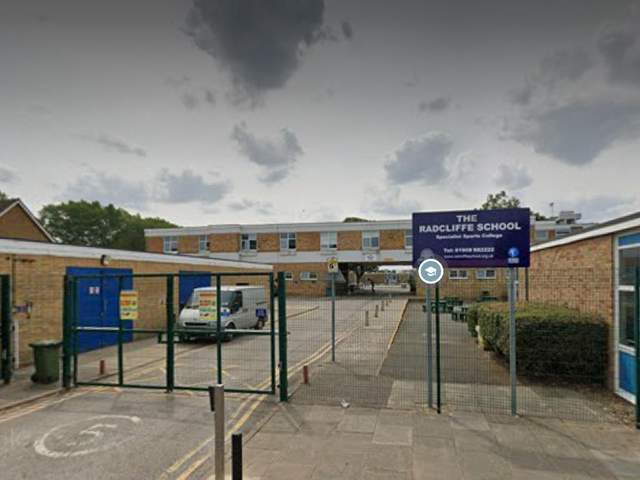The press watchdog has rapped a weekly newspaper after ruling that the use of a grieving child’s social media post constituted publishing an interview with her.
The Independent Press Standards Organisation has upheld a complaint against the Milton Keynes Citizen after it included the 15-year-old’s words in a story about her 12-year-old sibling reportedly taking their own life.
The Citizen’s story reported the unnamed girl, a pupil at the city’s Radcliffe School, had posted about her “dissatisfaction” with the school claiming “homophobia is rife” and directly quoted from the post in question.
The paper defended the comment’s inclusion on the grounds that the quoted post had been made on a public social media forum, but IPSO found its publication constituted an interview with a child under 16 under the terms of the Editors’ Code of Practice because the subject matter of the comment clearly related to her welfare and had not been published with her parents’ consent.

The Radcliffe School, Milton Keynes
The school, acting on its own behalf and on behalf of the girl’s family, claimed the Citizen had breached Clause 1 (Accuracy), Clause 4 (Intrusion into grief or shock) and Clause 6 (Children) of the Editors’ Code in its coverage of the child’s death.
In its complaint, the school said the paper had used the social media post of a minor – the 15-year-old sibling of the deceased child – in a published story without the express consent of a responsible adult.
It also said the story was inaccurate because it claimed, based on a single source, that bullying suffered by the deceased child was “relentless”, and alleged a reporter who had phoned the school for comment had been rude to a member of staff and had subsequently hung up.
The school claimed this approach was not sympathetic in circumstances where its priority was helping its pupils and staff deal with the loss of one of the school community.
The Citizen denied any suggestion that the story was inaccurate, misleading, or distorted, or that it had not taken care over its accuracy, but accepted that the inclusion of the comment from the dead child’s sibling could perhaps not be fully justified.
In its defence, the paper said that the post had been made on a public social media forum, a Facebook group with more than 12,000 members, and was not therefore an interview as defined by Clause 6.
The Citizen also considered that the social media post did not relate to the child’s welfare because it was a comment relating to the behaviour of some pupils at the school and the lack of action from the school.
It added it had mistakenly believed that it had the blessing of the child’s family, but believed any alleged breach could be justified by the exceptional public interest in bringing allegations of serious bullying – which had allegedly led to the death of a child – to the attention of the public, and therefore help prevent similar situations occurring in the future.
The Citizen said that it had also considered the statements and emails provided by the people who had contacted it, and the extent to which there was already widespread discussion around the death, and had explored the possibility of deferring the publication until after the inquest.
However – considering the fact that a coroner could not be unduly influenced by media publications, and in light of the great concern of the students – it said it ultimately reached the decision to publish the story prior to the inquest.
The paper said its reporter was polite at all times and that a member of staff had hung up on her during the call, rather than vice versa, but concluded that it wished to resolve the complaint as a gesture of goodwill to the family.
It offered to write a private letter of apology to the family, make a £1,000 donation to a charity of the family’s choosing, publish a story exonerating the school if the inquest found the claims of bullying were unfounded, provide the school with two-facing pages within the paper to showcase the school and provide an assurance that the story would not be republished.
The school did not accept that Citizen’s response was sufficient to address its concerns, and said that it wished for IPSO’s Complaints Committee to consider the matter further.
IPSO noted the requirement that an exceptional public interest is needed to override the normally paramount interest of children under 16, and that honouring the full spirit of the Code means that what will constitute an “interview” is broader than circumstances where a journalist directly solicits comment or information from a child.
In this instance, the comment was presented as the sister’s response to the allegations of homophobia and bullying at the school she attended, and in the view of the Committee, its publication in this context engaged the terms of Clause 6 (iii) and it constituted an interview under the terms of the sub-Clause.
IPSO acknowledged that there was a significant public interest in reporting on allegations of bullying and homophobia at the school and the role that they might have played in the child’s death, but there was an important distinction between the public interest in the story as a whole and the specific public interest in publishing this comment, attributed to the sister of the child who had died.
The public interest in publishing the comment was not so exceptional as to override the interests of a child, given the extremely sensitive subject matter and the girl’s vulnerable circumstances, immediately following the death of a sibling.
The complaint was partially upheld under Clause 6, and the full adjudication can be read here.





 Follow HTFP on Twitter
Follow HTFP on Twitter